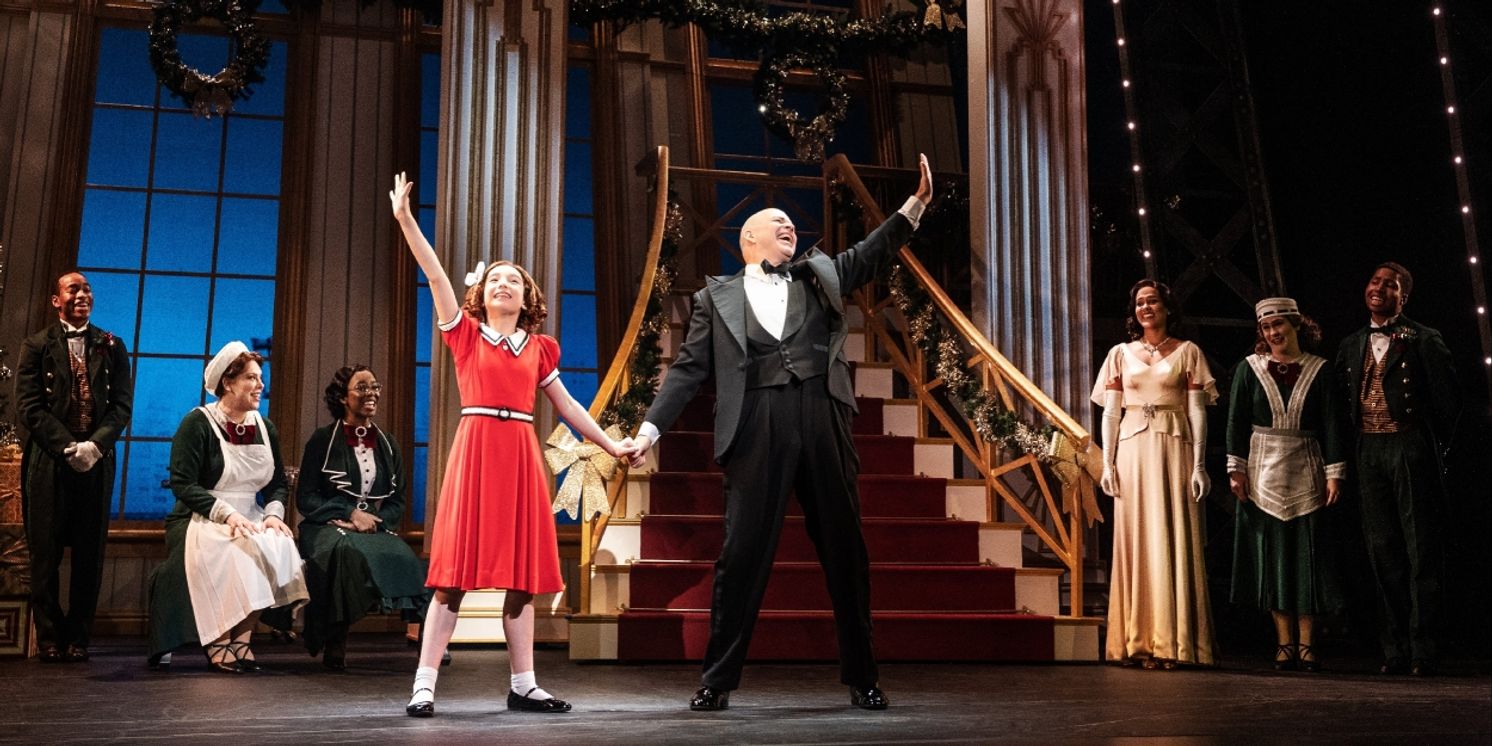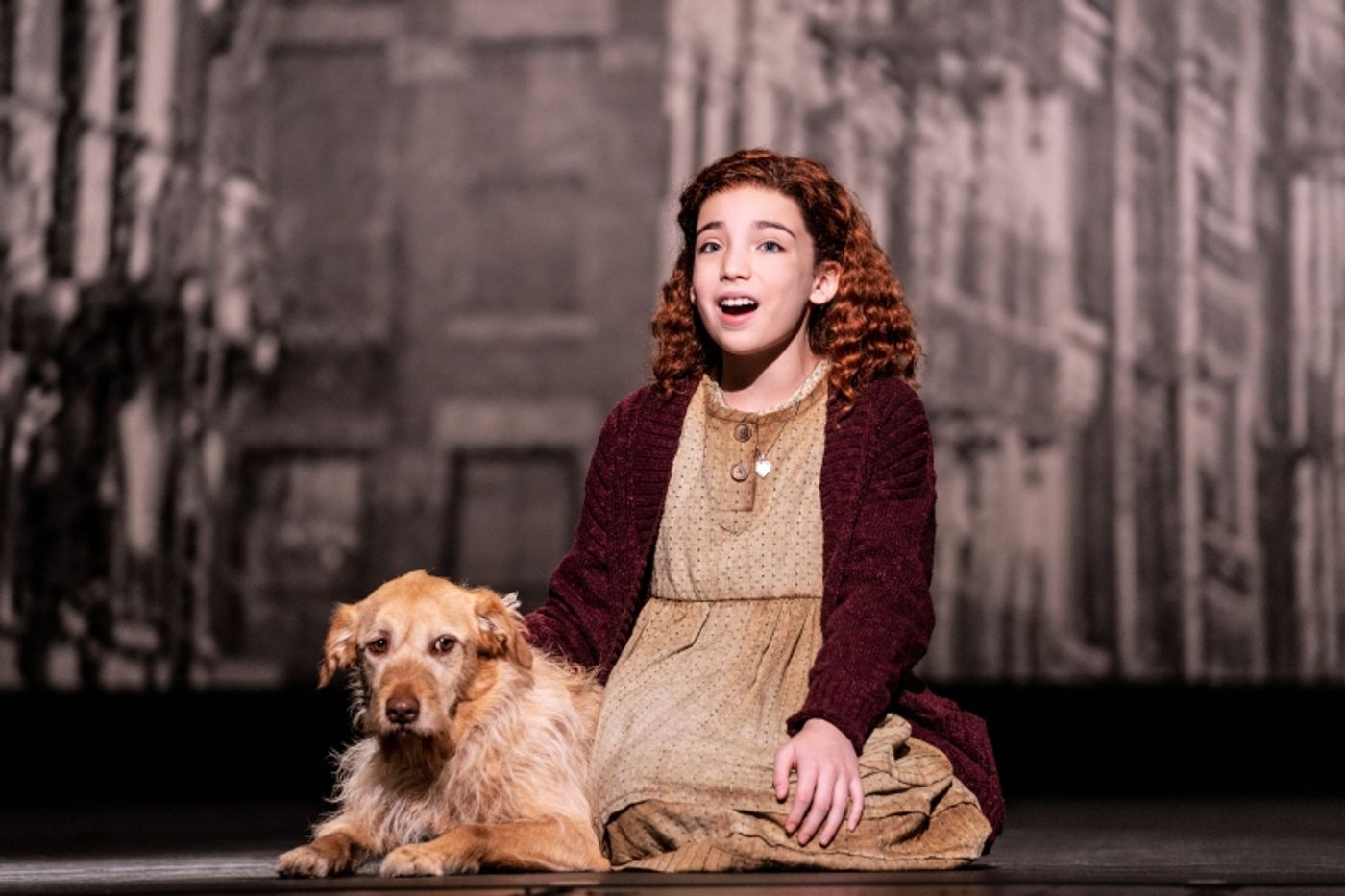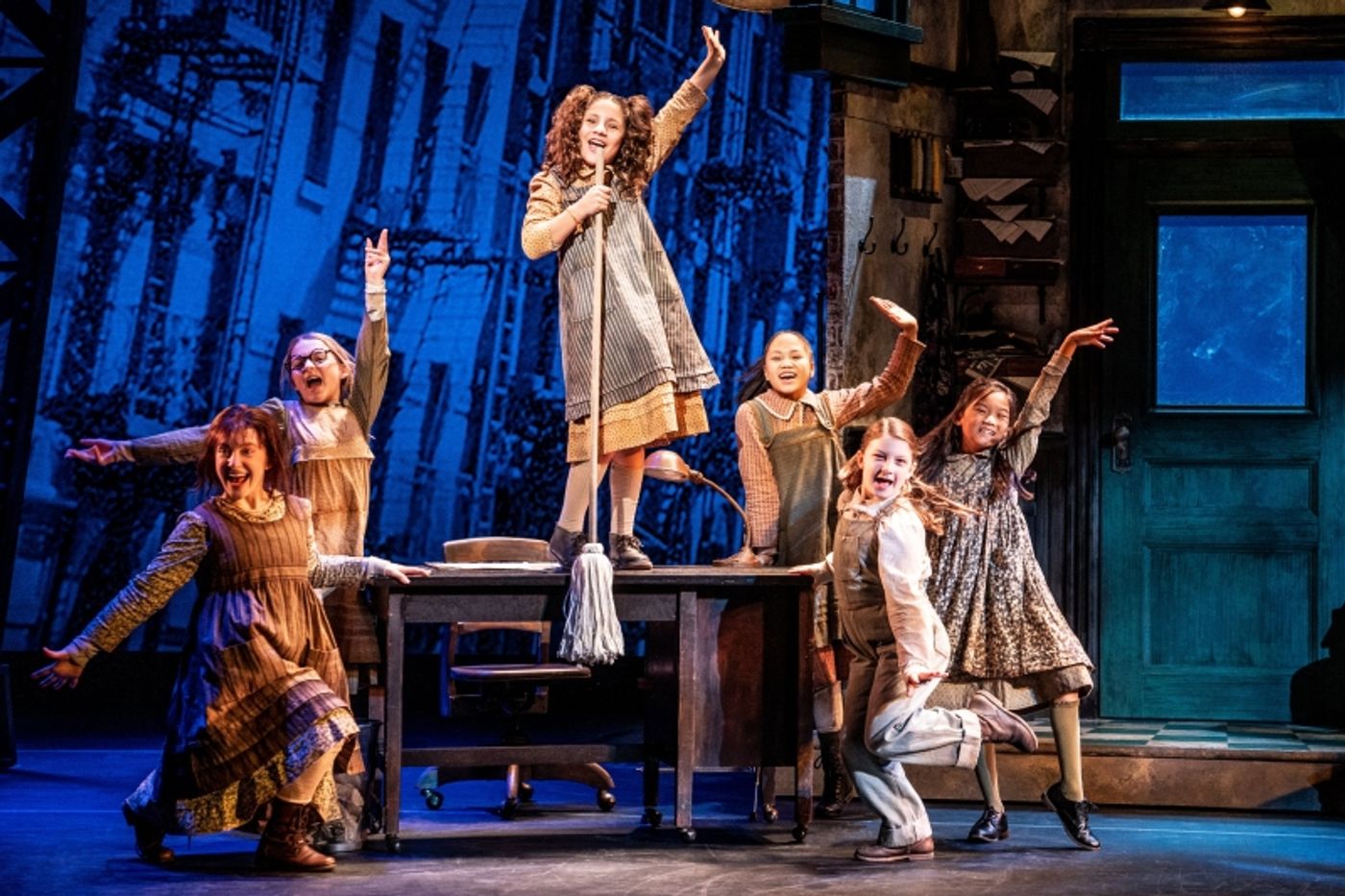Review: ANNIE at Dolby Theatre
ANNIE dreams of a better “Tomorrow“ in Hollywood through December 18

Little Orphan Annie has been a part of our collective consciousness for going on a hundred years, first in comic-strip form then on radio then films and finally on Broadway, where the intrepid moppet really defined her place in pop culture. The show ran for six years, won seven Tony Awards (including Best Musical), spawned four film adaptations (both big- and small-screen), and gifted us with classic numbers like "Tomorrow" and "It's the Hard Knock Life."
It, and she, is an American icon.

Taking place in New York City in 1933, smack dab in the middle of the Great Depression, ANNIE focuses on the titular heroine, a plucky, optimistic orphan who bumbles her way into good fortune and opportunity a la Forrest Gump. When Oliver "Daddy" Warbucks (Christopher Swan), a billionaire businessman, decides he wants to take in an orphan for two weeks at Christmas (for no discernible reason), Annie (Ellie Pulsifer) is the lucky chosen one, and they bond and embark on some misadventures.
The production now being performed at the Dolby Theatre in Hollywood is serviceable, though the material itself isn't strong enough to make it fly like it should. The biggest problem is that Annie is such a passive character. She doesn't DO anything. Things happen TO her. She's cheerful and tries to buoy the spirits of others, including the ragtag coterie of tykes she leaves behind at the orphanage, and she's admirable in her unflappability, but she isn't compelling as a character because she takes no action on her behalf. When presented with some of the harsher aspects of life, she takes only moments to process them before putting on a smile and looking toward a better day, which could be seen as resilience but really comes across as thinly drawn.
When Daddy Warbucks announces his intent to adopt her, we haven't seen their affection grow. We're told they've developed a relationship, but we don't see it evolve so the emotional stakes are practically nonexistent. There are scenes where almost nothing happens-no character development, no plot advancement-which only pad the show that runs two and a half hours. And at the same time, meaningful story threads are resolved off stage so there isn't any emotional payoff. The entire book is disjointed-stakes are set up then dissolved with no real consequences, like a plot to kidnap Annie by Miss Hannigan (Stefanie Londino), the unhappy and unscrupulous proprietress of the orphanage, and her brother and his moll, who appear out of nowhere. And Sandy (Addison), Annie's beloved canine companion, has absolutely no reason for existing. He doesn't figure into the plot in any way, and after being introduced is forgotten until the very end.

Valeria Velasco, Kenzie Rees Riglee,
Ruth Bryson, and Bronte Harrison
It's not that the show is terrible, it's just uninspired. Director Jenn Thompson, who played Pepper, one of the ensemble orphans, in the original Broadway run, does her best but ANNIE never rises above its problematic structure and characterization. The performances aren't weak, but it feels like the performers are going through the motions. Londino has some fun as the scenery-chewing Miss Hannigan and Swan is confidently dapper as Daddy, but otherwise there's not much spark.
With the state of the world these days, we need a heroine like Annie. With her positive outlook, her moxie, she should be a role model of hopefulness. We just need a better Annie. And Annie deserves a better vehicle.
ANNIE is performed at the Dolby Theatre, 6801 Hollywood Boulevard, through December 18. Tickets are available at BroadwayInHollywood.com, Ticketmaster.com, (800) 982-2787, and at the box office.
Photo credits: Matthew Murphy and Evan Zimmerman for MurphyMade
Reader Reviews

Videos

